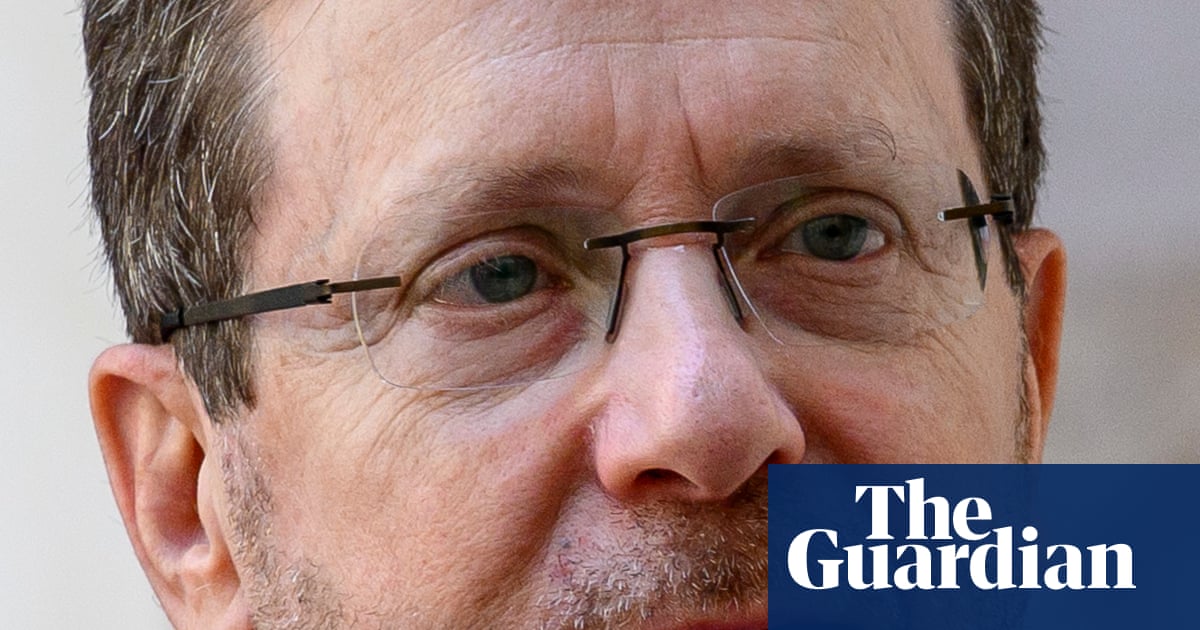A few months into Israel’s brutal campaign in Gaza, International Court of Justice judgessat down to write their reply to South Africa’s complaint that Israel was pursuing genocide.
Published on 26 January 2024, the order issued by the court called for provisional measures on Israel ruling that Palestinians in Gaza had “plausible rights to protection from genocide” – rights the court suggested were at a real risk of irreparable damage.
Supporting that ruling, the judges listed a series of statements made by senior Israeli officials, underpinning the claim by Philippe Lazzarini, the head of UN’s main Palestinian agency, UNRWA, that the crisis in Gaza was being “compounded by dehumanising language”.
Second in that list of statements was a comment made by Israel’s president, Isaac Herzog, in which he asserted that all Palestinians in Gaza were “unequivocally” responsible for the Hamas attack on southern Israel on 7 October.
“The entire [Palestinian] nation out there that is responsible,” said Herzog. “It is not true this rhetoric about civilians not aware, not involved.”
Herzog, who is due in London next week for talks with UK ministers, would push back, claiming that his statement was misrepresented by the ICJ in selectively quoting him.
It had ignored remarks, he said, in which he added that Israel was “acting in accordance with international law” – a claim contradicted by credible evidence to the contrary on multiple occasions, including the statement from the International Association of Genocide Scholars this week that Israel is committing genocide.
As president, Herzog, a former leader of Israel’s Labour party, has tended to work in lockstep with the policies in Gaza of the far-right coalition of the prime minister, Benjamin Netanyahu. Earlier this week, in a speech at the Israel Defense Prize ceremony in Jerusalem, he praised a “campaign, [where] courageous and important security decisions were made by the political leadership”.
During a visit to Gaza in July, Herzog repeated the official Israeli line – contradicted by foreign leaders and UN agencies – that Israel was not responsible for starvation in Gaza, instead blaming Hamas for looting aid and preventing its proper distribution.
“Israel is adamantly committed to the rules of international humanitarian law. Even in the midst of war, we are doing everything possible to help civilians in need – in keeping with international law, and our Israeli and Jewish values.”
All of which explains why Herzog – once seen inside Israel as the best chance of rehabilitating the tarnished brand of the country’s failing Labour party – is regarded by many these days, not as a potential voice of reason speaking out against Netanyahu’s far-right coalition, but one of its enablers, not least on the diplomatic front where he has been employed to defend Israel’s actions.
Herzog’s planned visit to the UK next week, where he is expected to meet with ministers, suggests Israel is keen to present the visit as a diplomatic coup amid preparations for briefings to senior media figures.
For Herzog, who became president in 2021, the journey from stalwart of Israel’s centrist Labour party to apologist for a brutal war that has killed over 65,000 Palestinians and brought the coastal strip to widening conditions of starvation, is a striking one.
While a largely symbolic role in political terms, Herzog serves as Israel’s head of state, at a time of growing international outrage and horror at its actions. Lacking the huge international standing of his predecessor Shimon Peres (despite Peres’s own failings) or the charisma of Reuven Rivlin, a political enemy of Netanyahu on the right, Herzog has been shunted into the role representing Israel in countries uncomfortable with Netanyahu and his ministers.
Described at the time of his appointment by Haaretz’s columnist Allison Kaplan Somer as close to “royalty” as Israel’s political system can conceive, Herzog is the son of Irish-born Chaim Herzog, who himself served as president from 1983 to 1993, and the grandson of Rabbi Yitzhak Halevi Herzog, who was the first chief rabbi of Ireland for more than a decade, before becoming chief rabbi of Palestine, and then Israel, from 1936 until 1959.
Then there was Herzog’s uncle, Abba Eban, perhaps the country’s most famous diplomat, who was Israel’s foreign minister and ambassador to the United Nations and to the US.
A wealthy lawyer by training, Herzog is seen as the last leader of Israel’s Labour party who had a chance of revisiting the past electoral influence amid Israel’s swing rightwards under Netanyahu.
Softly spoken, respectful, and even bland, Herzog, ran unsuccessfully for prime minister in 2015 in what many judged to be a lack lustre campaign.
Once a strong advocate for a two-state solution, Herzog, suggested he had changed his view after the Hamas attacks of 2023. Speaking at the World Economic Forum in Davos earlier this year, he said expecting Israel to withdraw form the settlements in the illegally occupied West Bank is “not realistic at all. It doesn’t make sense to Israelis. They need to see something that makes sense in terms of their personal security and safety”.
